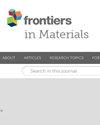低分子量生物基聚酯橡胶的合成和性能评估,作为聚氯乙烯的新型环保聚合增塑剂
IF 2.9
4区 材料科学
Q3 MATERIALS SCIENCE, MULTIDISCIPLINARY
引用次数: 0
摘要
开发具有优异抗迁移性的环保型聚合增塑剂是聚氯乙烯(PVC)行业的研究热点之一。研究人员在 100 升反应器中用五种生物基聚酯单体合成了一种低分子量生物基聚酯橡胶(LMW-BPR),并对其作为聚氯乙烯潜在的环保型聚合物增塑剂进行了评估。得到的 LMW-BPR 是一种无定形聚酯材料,玻璃化温度低至 -48°C,分子量为 22 kg/mol,低于现有聚酯橡胶的分子量,但高于大多数聚酯增塑剂商品的分子量。以 LMW-BPR 和环己烷-1,2-二甲酸二异壬酯(DINCH,一种环保型单体增塑剂商品)的混合物为增塑剂,制备了增塑剂总含量为 50 phr 的增塑 PVC 复合材料。耐迁移性测试表明,增塑聚氯乙烯复合材料中增塑剂的迁移损失随 LMW-BPR 含量的增加而显著降低。当 LMW-BPR 的含量达到 30 phr 时,增塑 PVC 复合材料几乎不迁移。此外,与纯 DINCH 塑化的 PVC 复合材料相比,含有 LMW-BPR 的共塑化 PVC 复合材料表现出更高的拉伸强度和热稳定性,其柔韧性、耐低温性和生物相容性也保持在与前者相似的水平。总之,LMW-BPR 是一种有效的 PVC 环保聚合物增塑剂,而且具有可持续性和可扩展性,值得广泛应用。本文章由计算机程序翻译,如有差异,请以英文原文为准。
Synthesis and performance evaluation of low-molecular-weight biobased polyester rubber as a novel eco-friendly polymeric plasticizer for polyvinyl chloride
Developing eco-friendly polymeric plasticizers with excellent migration resistance is one of the research hotspots in the polyvinyl chloride (PVC) industry. A low-molecular-weight biobased polyester rubber (LMW-BPR) was synthesized from five biobased polyester monomers in a 100-L reactor and evaluated as a potential eco-friendly polymeric plasticizer for PVC. The obtained LMW-BPR is an amorphous polyester material with a low glass transition temperature of −48°C and a molecular weight of 22 kg/mol, which is lower than that of existing polyester rubber but higher than those of most polyester plasticizer commodities. Plasticized PVC composites with a total plasticizer content of 50 phr were prepared by using the mixture of LMW-BPR and di-isononyl cyclohexane-1,2-dicarboxylate (DINCH, an eco-friendly monomeric plasticizer commodity) as the plasticizer. The migration resistance test showed that the migration loss of plasticizer in plasticized PVC composite decreased significantly with the increase of LMW-BPR content. When the content of LMW-BPR reaches 30 phr, the plasticized PVC composites are almost nonmigratory. In addition, compared with PVC composite plasticized by pure DINCH, co-plasticized PVC composites containing LMW-BPR exhibit higher tensile strength and thermal stability, and their flexibility, low-temperature resistance and biocompatibility are also maintained at a similar level to the former. Overall, LMW-BPR is an effective eco-friendly polymeric plasticizer for PVC and also sustainable and scalable, thus it is worthy of wide application.
求助全文
通过发布文献求助,成功后即可免费获取论文全文。
去求助
来源期刊

Frontiers in Materials
Materials Science-Materials Science (miscellaneous)
CiteScore
4.80
自引率
6.20%
发文量
749
审稿时长
12 weeks
期刊介绍:
Frontiers in Materials is a high visibility journal publishing rigorously peer-reviewed research across the entire breadth of materials science and engineering. This interdisciplinary open-access journal is at the forefront of disseminating and communicating scientific knowledge and impactful discoveries to researchers across academia and industry, and the public worldwide.
Founded upon a research community driven approach, this Journal provides a balanced and comprehensive offering of Specialty Sections, each of which has a dedicated Editorial Board of leading experts in the respective field.
 求助内容:
求助内容: 应助结果提醒方式:
应助结果提醒方式:


